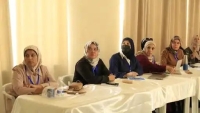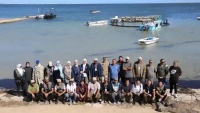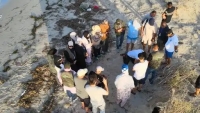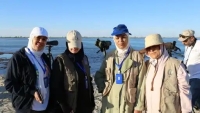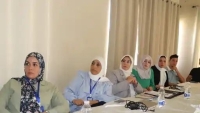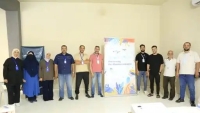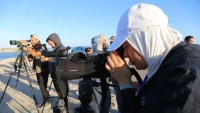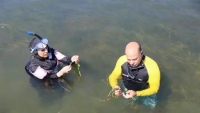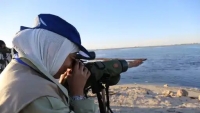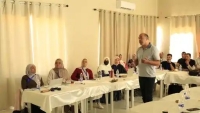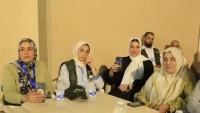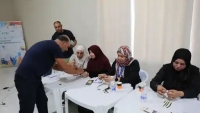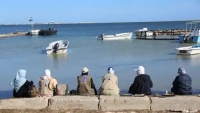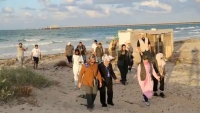From 7 to 11 October 2025, a national training workshop was held in the Farwa Lagoon Marine Protected Area, Libya.
Organized by SPA/RAC under the EU-funded SEMPA project, in close collaboration with the Libyan Ministry of Environment and the NGO Beseda, and with the support of WWF North Africa through the GEF-funded MedProgramme CP 3.1 project and the Blue South Med project, the workshop aimed to strengthen national capacities for the implementation of the Integrated Monitoring and Assessment Programme (IMAP) under the Barcelona Convention.
IMAP provides a common scientific basis and a regional cooperation framework among Mediterranean countries, fostering a shared understanding of the state of the sea and coastal ecosystems. It supports evidence-based decision-making and informs marine conservation policies.
However, to be fully effective, its implementation must reflect the diversity of Mediterranean societies — notably through the participation of women, youth, and civil society.
A Field Dynamic Supported by International Cooperation
In Libya, SPA/RAC, the Ministry of Environment, and their regional partners are leading several complementary initiatives to encourage this representativeness and to strengthen environmental governance. These joint efforts have helped create a genuine national momentum around marine conservation:
- Assessments of the legal and institutional framework paved the way for the drafting of a law on protected areas, which provides for the creation of a National Council for Protected Areas.
- Consultations and training activities have brought together institutions, NGOs, and local communities to engage jointly in the management of protected areas and biodiversity monitoring.
- Synergies between projects — particularly between GEF CP 3.1 and SEMPA — have enhanced the skills of field teams in governance, climate adaptation, and the use of tools such as IMET for assessing MPA management effectiveness.
A Training Rooted in Local Participation
The Farwa workshop was part of this integrated approach. It brought together a wide range of stakeholders (around forty participants), including representatives from the Ministry of Environment, the Libyan Society for Birds, the Libyan Society for the Friends of Artisanal Fishing, the Libyan Center for Terrestrial and Marine Environment Research, LIKAW Organization, the Beseda Association for the Protection of Farwa Island and Lagoon, the Bado Association, the High Institute for Marine Science Technologies (Sabratha), Omar Al-Mukhtar University, and the Environmental Affairs Office in Zouara.
Over five days, participants alternated between theoretical sessions and field exercises focusing on marine turtles, Posidonia seagrass meadows, marine mammals, birds, and the management of marine protected areas. This alternation, combined with clear and tailored communication facilitated by local trainers, fostered active and meaningful participation.
The event was distinguished by a strong participation of young people, with 30% of participants under the age of 35, as well as by the presence of 30% women, representing about one third of all participants.
“This training was exceptional, both in terms of content and format. It made the IMAP process truly accessible. Our association will be able to contribute to this important effort — possibly in coordination and collaboration with other NGOs and institutions that took part in the training,” said Lobna Ahmed Chahoubi.
A Step Towards More Inclusive Governance
These training and mobilization efforts are part of a long-term strategy to strengthen civic participation in Libya. Discussions highlighted the essential role of women in environmental awareness, research, and the sustainable management of natural resources — despite social and logistical constraints that may at times limit their involvement in fieldwork.
“Women are very present in universities; we should therefore reach out to where they are, involve them more, and further train them in fieldwork, which is the foundation of any conservation effort,” noted Yassine Ramzi Sghaier, Project Officer at SPA/RAC.
Following this workshop, it was agreed that future training cycles would be extended to Libyan universities, in order to further strengthen women’s participation and youth engagement in marine biodiversity monitoring.

